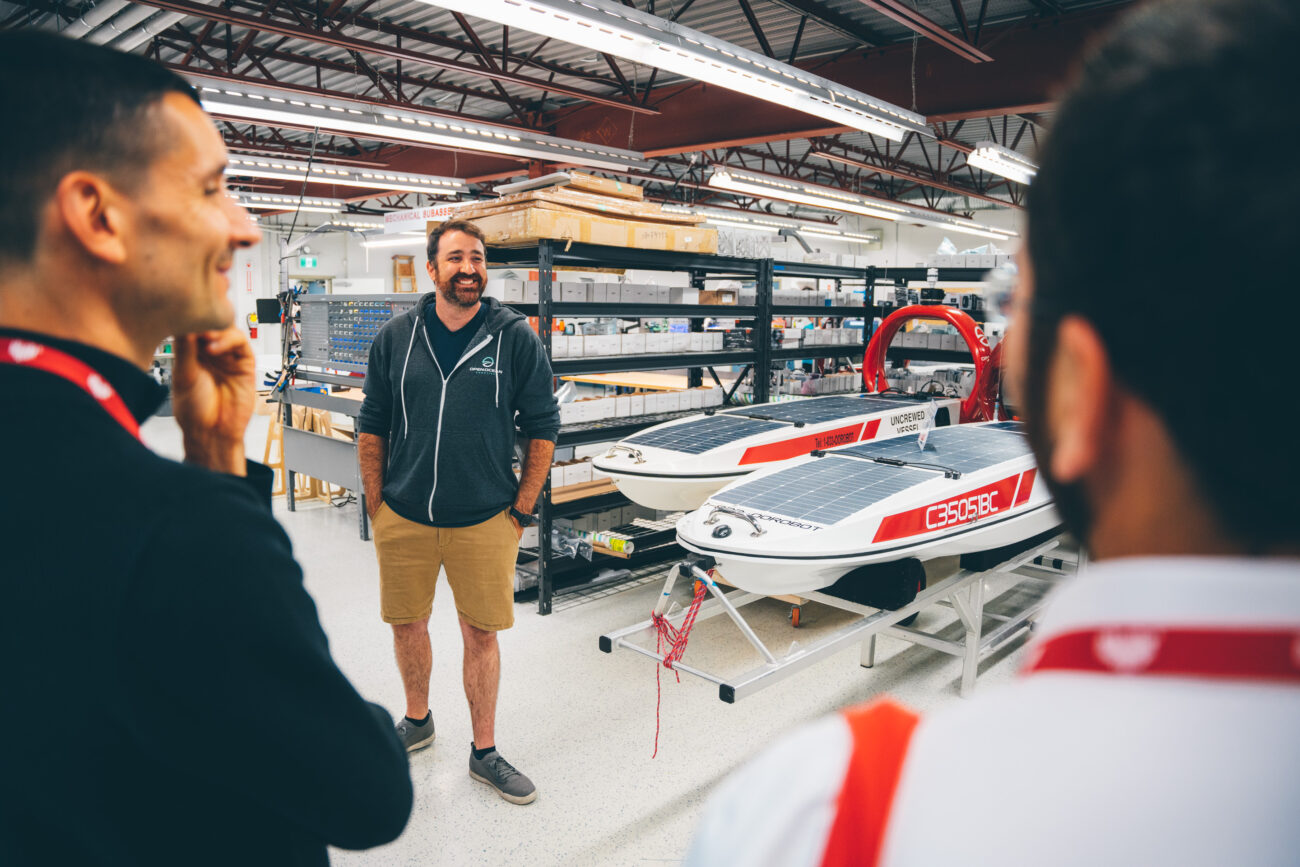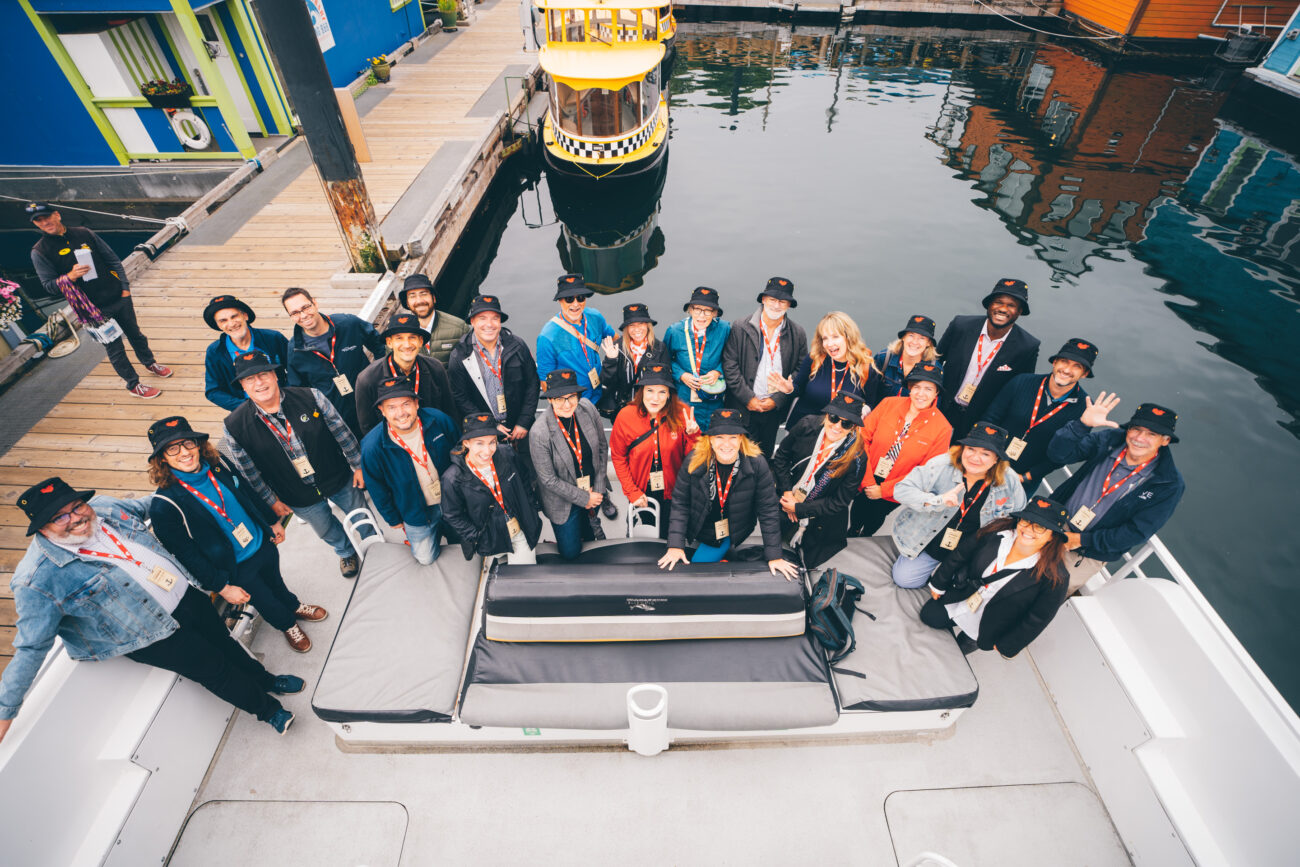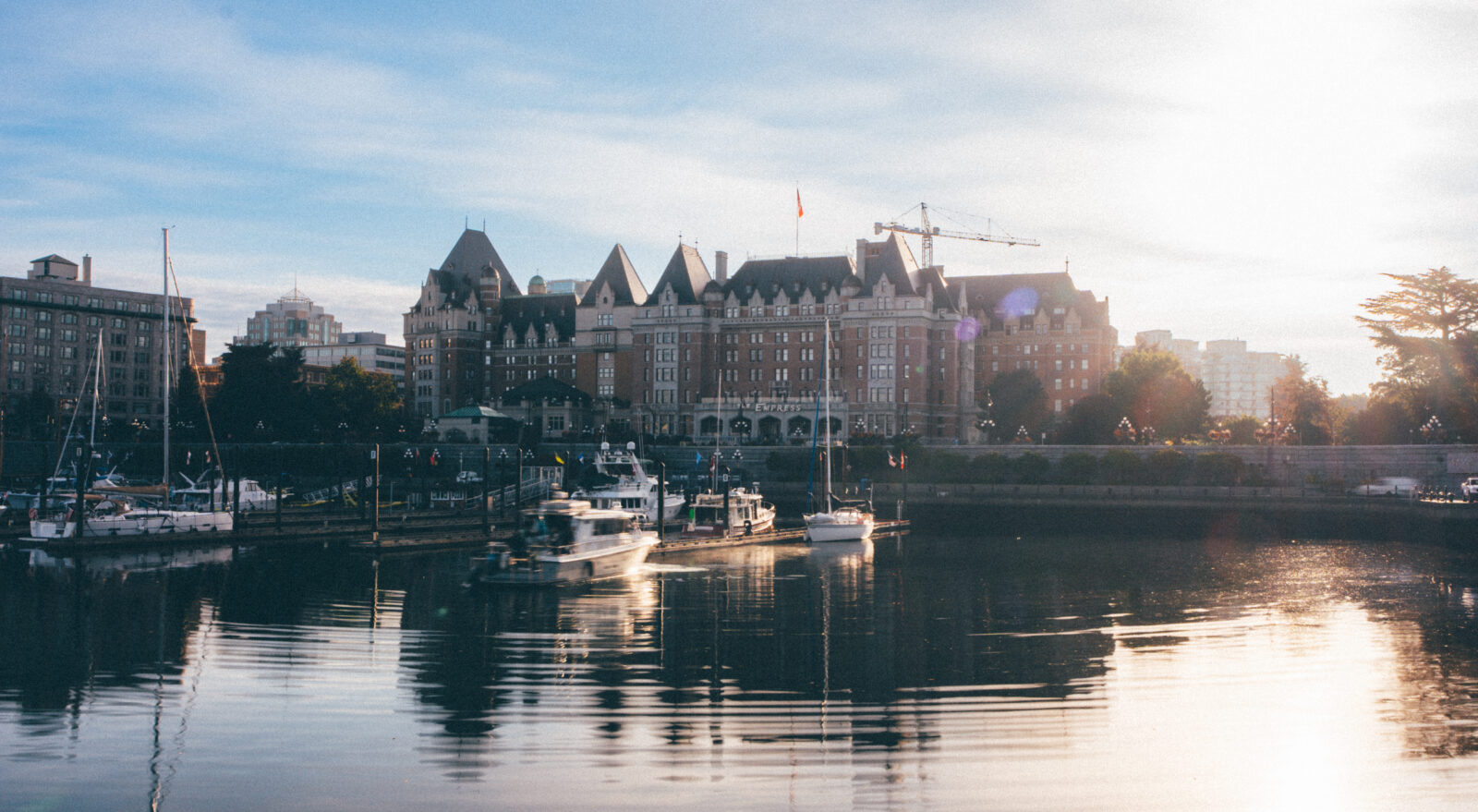Innovate Canada’s dynamic approach involves rotating destinations and industry sectors each year, showcasing Canada’s pioneering work in various innovation fields and aligning them with relevant business events. This concept reflects Destination Canada’s Economic Sector Strategy, which identifies six key sectors where the country excels: agribusiness, finance and insurance, life sciences, natural resources, digital industries, and advanced manufacturing.
Virginie De Visscher, Acting Executive Director, Business Events, Destination Canada, explains: “Destination Canada’s current mandate in the business events sector is to promote and attract international events to Canada. Previously, our approach focused primarily on highlighting Canada’s natural beauty and tourism infrastructure. However, about six years ago, we underwent a significant transformation in our approach to promoting Canada, and we transitioned to a sector-based strategy, aligning our destinations’ economic strengths with events within those sectors complementing our beauty.”
The rationale behind this shift was the belief that hosting events matching some of the country’s expertise would serve as catalysts for economic growth. To identify these key sectors, Destination Canada aligned with Canada’s international trade and investment priorities.
“To execute this strategy effectively, we realized that we needed to innovate and do something different. While the traditional approach involved hosting clients and showcasing our infrastructure, we wanted to find a more compelling way to spotlight a sector’s strengths. This led to the inception of the concept known as “Innovate Canada,” De Visscher continues.
By focusing on key industries and their forward-thinking experts, Canada leverages its intellectual capital and collaborative spirit to make a purposeful impact when hosting conferences. Associations gain access to a comprehensive knowledge ecosystem, talent pool, best practices, and valuable content for their conferences.
In this edition, Innovate Canada centered on Canada’s ocean ecosystem, taking place in Victoria, British Columbia, from September 11 to 14, with participation from six other Canadian destinations. The event provided international delegates with four days of exploring cutting-edge technology facilities and engaging with innovators in their workplaces. Interactive tours provided insights into the country’s extensive knowledge and capabilities in various aspects of the blue economy.
When in Victoria
Destination Canada selected Victoria as the meeting location due to its abundant assets in all things ocean-related. The city is home to notable features, such as the Esquimalt Graving Dock, one of the largest dry docks on the Pacific Coast, which provides crucial services for a diverse range of ships – military and commercial. Moreover, numerous on-site and technical visits were organized, offering the attending associations an opportunity to engage with the innovators who contribute to the city’s appeal.
In that regard, Open Ocean Robotics is a pioneering company at the forefront of ocean technology innovation. Specializing in the development of autonomous uncrewed surface vessels (USVs), it is dedicated to providing cutting-edge solutions for environmental monitoring, research, and data collection in marine environments. With their state-of-the-art technology and a commitment to sustainability, the relatively young company is transforming how we explore and protect our oceans while contributing to advancements in marine science and conservation.

Meanwhile, Cascadia Seaweed is dedicated to harnessing the rich potential of seaweed cultivation to address environmental challenges and provide a renewable source of food and other products. With a commitment to conservation and innovation, they are redefining the future of ocean farming while contributing to a more sustainable aquaculture and marine agriculture.
Last but not least is Ocean Networks Canada, a world-leading ocean observing facility. Hosted and owned by the University of Victoria, ONC is dedicated to collecting real-time open data from the east and west coasts of Canada, as well as the Arctic. Its comprehensive observing networks, including cabled, mobile, and community-based systems, contribute significantly to Canada’s ocean observing science capacity, and provide invaluable ocean intelligence to scientists, governments, organizations, and citizens.
The Partners
The 2.5 days spent in Victoria also presented the associations in attendance with the opportunity to meet with some of Destination Canada’s partner cities.
Nestled along Canada’s eastern seaboard, Halifax stands as a shining example of oceanic expertise. Rooted in a rich maritime history and strategically positioned, the city has cultivated a profound knowledge base in all things ocean-related. Case in point: the Bedford Institute of Oceanography, one of North America’s largest oceanographic research centres, where scientists, engineers, and technicians delve into the depths of oceanography, from marine ecosystems and climate change to pioneering deep-sea exploration. The city’s prowess extends beyond research to cutting-edge marine technology, epitomized by companies that specialize, for instance, in underwater robotics and sonar systems. Moreover, the city’s bustling marine industry, anchored by the ice-free waters of the port of Halifax, plays a pivotal role in both national and international trade, while sustainable fishing practices underscore its commitment to responsible ocean stewardship. Academically, Dalhousie University takes the lead, offering marine education and conducting groundbreaking oceanographic research.
Owing to its strategic location on Canada’s west coast, abundant natural resources, innovative research institutions, and a thriving marine industry, Vancouver is renowned for its expertise in the oceans. The city’s historical roots are deeply intertwined with the sea, as its indigenous peoples have been connected to the coast and the waterways for thousands of years. Today, Vancouver is home to leading marine technology companies, research institutes, and world-class academic institutions, like the University of British Columbia, that provide cutting-edge expertise in areas such as marine biology, ocean engineering, and sustainable fisheries management, such as OceanWise. It comes hardly as a surprise the city has played host to the International Association of Ports and Harbors and IMPAC, the International Marine Protection Congress.
Québec – more surprisingly maybe – is also a global powerhouse in the ocean sector. Its strategic position along the St. Lawrence River, providing direct access to the Atlantic Ocean, has transformed it into a thriving hub for ocean-related activities, encompassing marine research, shipping, and sustainable resource management. The port of Québec ranks as Canada’s fifth largest, while the province hosts Davie, Canada’s foremost shipyard and industrial fabricator. Furthermore, Laval University offers a prestigious PhD program in oceanography, renowned for its cutting-edge multidisciplinary research.
Prince Edwards Island boasts thriving marine and OceanTech sectors integral to its economy. These encompass diverse activities like fishing, aquaculture, marine transportation, and marine technology. Particularly, the Advanced Marine Technology sector has witnessed remarkable growth, with sales surging from under $5 million to over $20 million, cementing its economic importance. Contributing 10.3% to the provincial GDP, the marine industry provides employment to thousands, focusing on innovative marine technologies.
Meanwhile in NewFoundland and Labrador, St. John’s, renowned as a ‘City of Ocean Excellence,’ is home to some of the globe’s most exclusive ocean tech facilities and cutting-edge research and innovation in the field. It boasts the highest concentration of specialized marine companies in Canada, making it a top destination for advanced education in ocean-related studies. In that regard, St. John’s is also the headquarters of Canada’s Ocean Supercluster, a groundbreaking cluster model that fosters cross-sector collaboration, expedites innovation, and bolsters Canada’s oceanic economy.

Why Canada
Canadian Ambassador Ashley Noseworthy, who also serves as the CEO and founder of Edgewise Environmental, a renowned marine environmental consultancy, put its like this: “Canada, in my view, stands as a vast nation yet inhabited by a closely-knit, fervent community. It’s a remarkable land where you encounter a diverse array of experiences. The dynamic nature of this country makes it an unparalleled setting for professional endeavors and gatherings. Canada offers an abundance of possibilities, and its people display an unwavering commitment to fostering collaborative ventures, making it a truly exceptional meeting destination.”
A carbon-neutral trip
Innovate Canada was, from the start, thought out as carbon neutral. “Our inaugural carbon-neutral event took place in 2023, but the journey began in 2022 when we launched our National Business Events Sustainability Plan, recognizing the need to lead by example. We believed it was essential not only to talk about sustainability but also to put it into practice, sharing knowledge based on our experiences,” explains Virginie De Visscher.
A crucial step involved the identification of the TRACE carbon calculator, a UK-based tool customized for business events, which closely matched the event’s requirements. Furthermore, Destination Canada initially selected 12 Sustainable Development Goals (SDGs) to align with Innovate Canada, but later made the decision to streamline this focus to five specific SDGs. This refinement provided clearer targets and objectives.
The sustainability strategy was structured on a pyramid framework, with a primary focus on avoidance (emphasizing the importance of saying no to certain practices), followed by reduction, reuse, and, lastly, recycling. Additionally, the emphasis was placed on providing vegetarian meals and phasing out the use of plastic water bottles as top priorities.
“Collaboration with vendors played a pivotal role in our sustainability efforts. Managing the multitude of stakeholders involved in planning a carbon-neutral event was a considerable undertaking,” says De Visscher. “And while not every aspect can be hand-held on a larger scale, our experiences with smaller events have allowed us to identify strategies that can be applied effectively. Simple measures, like reducing shuttle usage and offering meals with minimal environmental impact, remain consistent across event sizes. These efforts underscore the importance of collective action in fostering sustainability within the events industry.”
